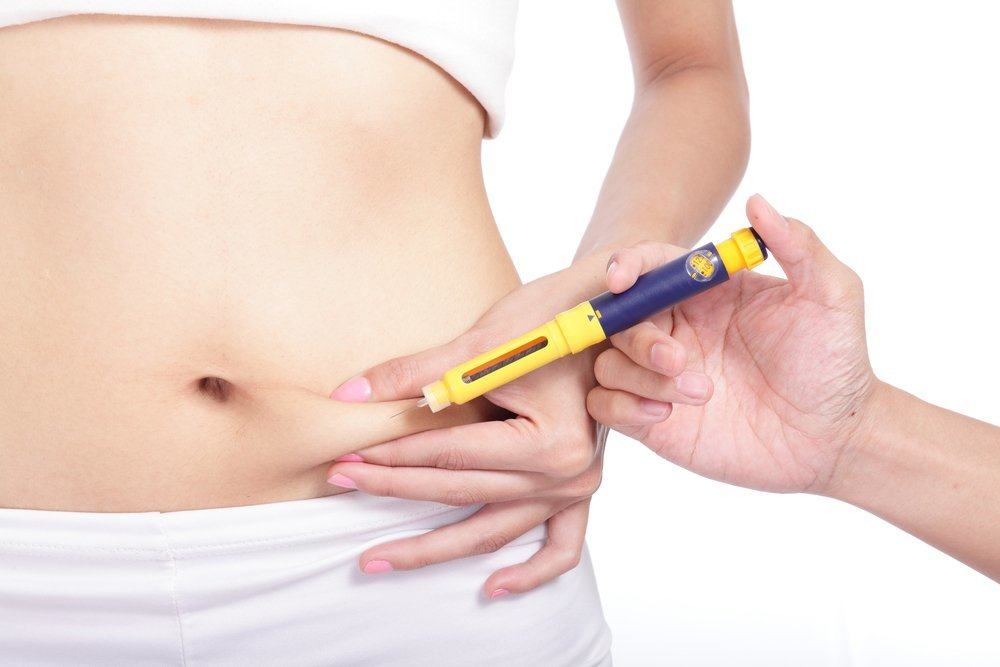Contents:
- Medical Video: Multiple Births and Fertility Treatment
- What types of fertility drugs and their functions?
- Clomiphene (clomid, serophene)
- Gonadotropin
- Metformin
- Bromocriptine
- Other drugs
Medical Video: Multiple Births and Fertility Treatment
Have you managed to get pregnant? Have you had a miscarriage? Many factors cause you to not get pregnant until now or have a miscarriage. One factor is the condition of your uterus or womb. Does your ovary in your uterus regularly release eggs? Is your uterine wall strong as a place for attaching eggs? And many other factors. To improve this condition, you might be able to use a fertility drug.
What types of fertility drugs and their functions?
You need to have a healthy uterus so you can successfully get pregnant and give birth to a child. Your uterus must be in a healthy condition to be able to release eggs regularly. In addition, it must also be strong so that the egg can stick. Even though your eggs can be fertilized by sperm, but if you can't stick to your uterus, you will experience a miscarriage.
At this time, the doctor may say that your uterus is not healthy for implantation (attaching eggs). Next, the doctor may prescribe uterine fertilizers for you.
READ ALSO: Medicines That Can Reduce Women's Fertility
Many fertility drugs with various functions. Your doctor will give you this medication according to your condition so you can get pregnant quickly. Some fertility drugs and their functions, namely:
Clomiphene (clomid, serophene)
The doctor will prescribe this type of fertility drug if you do not release eggs (ovulation) normally or regularly. Clomid and serophene are drugs that inhibit estrogen. And, causing the hypothalamus and pituitary glands to release hormones (such as GnRH, FSH, and LH) to trigger your ovaries to release eggs.
This medicine is in the form of a pill and you should take this pill on the third, fourth, or fifth day after you start menstruating. Drink the pill for 5 days. Then, your body may start releasing eggs about 7 days after you take the last dose of this drug.
For example, if you take a pill on the third day of menstruation until the seventh day of menstruation, it is expected that on the 14th day of your menstrual period your body has released the egg (ovulation). Most women can get pregnant after undergoing 3 times this cycle.
After you ovulate, most doctors will advise you to stop taking this medicine after 6 months. If you are not pregnant, too, after 6 months of taking this medication, your doctor may advise you to switch to other fertility drugs.
However this is a drug which certainly has side effects. Side effects that can be found when using this drug are blurred vision, feeling hot (hot flashes), nausea, bloating, and headache. Clomid can also cause changes in the mucus in your cervix, which causes you difficulty in determining the fertile period or can also stop the passage of sperm to your cervix to reach the egg. In addition, clomid can also increase your chances of having twins, just like other uterine fertilizers.
Gonadotropin
Gonadotropin is used to stimulate the maturation and release of eggs by the ovaries (ovulation). This gonadotropin is usually used in women who have hormonal problems (PCOS) that are not effective with the use of other fertility drugs or for women who are undergoing IVF.
Gonadotropin consisting of LH and FSH hormones will be injected to you for 12 days. This injection will make your ovaries expand and ripen the egg follicles. So, then you can release eggs as one of the conditions to achieve pregnancy. Besides gonadotropin injections, you will also be injected with the hormone hCG.
Gonadotropin and hCG will stimulate the ovaries to release eggs. LH stimulates follicles to release eggs. While hCG is responsible for ensuring the follicles are in the right condition to release progesterone, this can help you to maintain pregnancy.
READ ALSO: 10 Myths and Facts About Fertility
Metformin
Metformin is commonly used to treat diabetes or in women who have hormonal problems or PCOS. But, this drug can also stimulate your body to release eggs (ovulation) or can also be used as an additional drug for other fertility drugs, such as combined with clomiphene (clomid).
Metformin is very useful for women who are obese because they usually have problems with insulin levels in the body. Why? Metformin can make the body more sensitive to insulin by reducing insulin levels in the blood. This can then reduce testosterone levels, thus helping the body to ovulate. You can take metformin in tablet form 2-3 times per day.
Bromocriptine
This fertility drug is used to improve hormonal balance, so that your menstruation is regular. Your menstruation may not run regularly every month or your ovary does not release eggs every month. This can be caused by hormonal imbalances in your body. Well, this problem can be fixed using bromocriptine.
Bromocriptine can reduce high levels of the hormone prolactin, which causes a decrease in the hormone estrogen. High levels of the hormone prolactin can cause ovulation problems (egg release), so you have difficulty getting pregnant. You can use bromocriptine by swallowing it in tablet form or putting bromocriptine in capsule form into your vagina.
Other drugs
Other fertility drugs are also usually given when you are in IVF. Some medications that can be used to control your menstrual cycle during IVF are:
Gonadotropin releasing hormone (GnRH) agonist and antagonist
GnRH agonist is used by spraying the nose several times a day, or injected per day or per month. Meanwhile, GnRH antagonists are used by injecting into your body every day. Both of these drugs are used to control the menstrual cycle or the release of your eggs. This is so that your ovulation can be controlled when you do IVF.
READ ALSO: Steps to Conduct IVF Process
Progesterone and estrogen
Both of these hormones function to prepare the uterus during pregnancy, helping to maintain the uterine wall for implantation (attaching eggs). Progesterone and estrogen work by thickening the uterine wall. Progesterone is used by being swallowed in pill form, injected into the buttocks, or inserted into the vagina. Meanwhile, estrogen is given in the form of pills, patches, or injections. Giving these two hormones is part of the IVF process.












